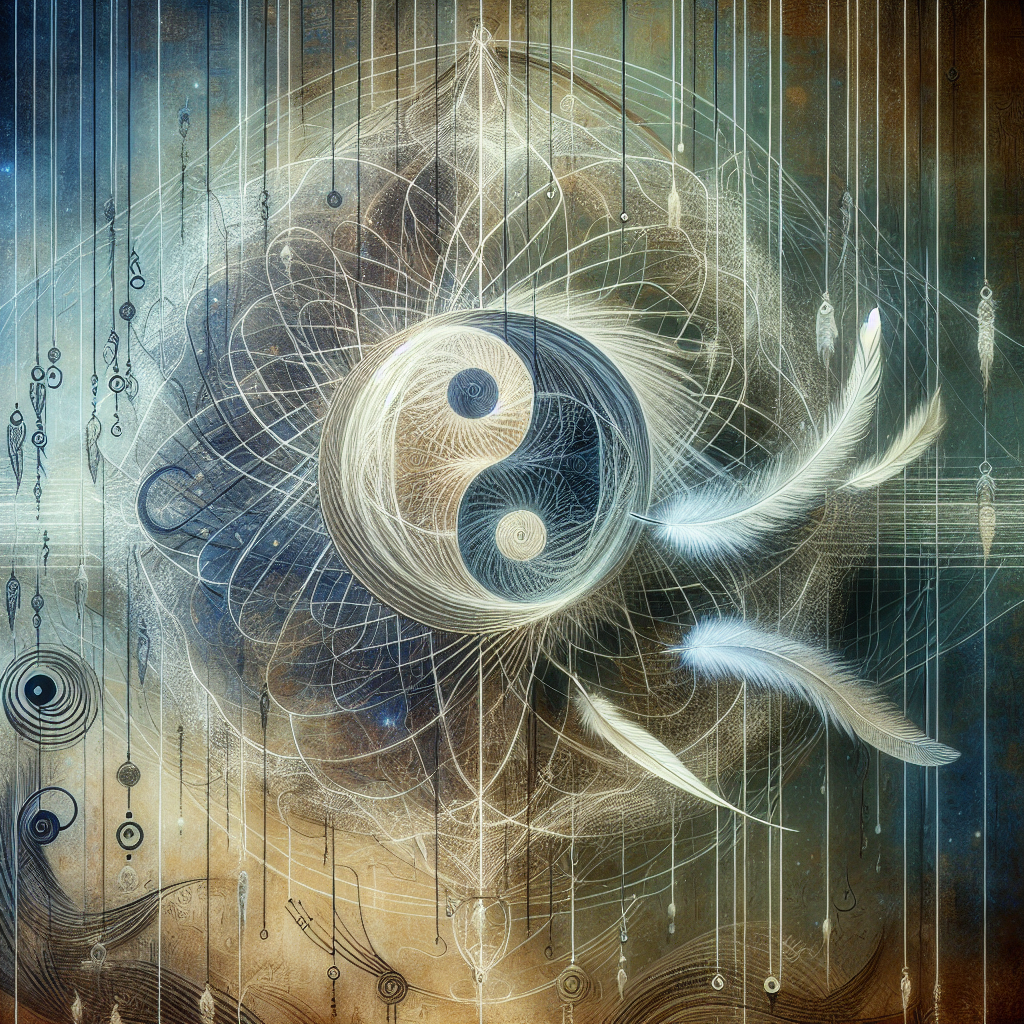Karma is often depicted as a cosmic law of cause and effect, where good deeds lead to positive outcomes, and bad actions yield negative consequences. This notion, while popular in various cultures and spiritual discussions, is laden with misconceptions. The myths surrounding karma can frequently lead to misunderstandings about its true nature and the intricate relationships between our actions, intentions, and the universe. It’s crucial to unravel these myths, to deepen our understanding and appreciate the complexities of karma.
Myth 1: Karma is a Simple Reward and Punishment System
One of the most pervasive myths about karma is the idea that it operates merely as a system of rewards and punishments. This view oversimplifies karma by suggesting a direct and linear relationship between an action and its outcome, akin to a transactional model. In reality, karma encompasses a far more intricate web of circumstances shaped by numerous factors, including one’s intentions, the context of actions, and the interconnectedness of all beings.
Karma is not a cosmic vending machine where good intentions result in specific rewards or ill actions lead to predetermined penalties. Instead, it reflects a more nuanced understanding of cause and effect across time and space, where the impact of our actions often resonates beyond individual circumstances.
Myth 2: Karma is Immediate
Another myth is the belief that karma operates immediately; that good or bad deeds will yield instant results in the material world. While some might experience quick consequences for their actions, karma does not adhere to a strict timeframe. The effects of our deeds may manifest in this life, future lives, or even across many generations, operating in ways that might be completely imperceptible at first glance.
This long-term perspective necessitates a wider view of morality and ethics that transcends immediate gratification. Our actions ripple out, influencing not just our own lives but the lives of others, sometimes in ways that we may never witness. Understanding this prolonged timeline encourages mindfulness in every action we undertake.
Myth 3: Karma is a Fatalistic Force
Some interpret karma as a deterministic influence on life events. This fatalistic perspective might lead people to believe that their circumstances are set in stone based on past actions, creating a sense of powerlessness in shaping one’s future. However, while karma does acknowledge the impact of previous actions, it does not equate to a predetermined fate.
Human beings possess agency and free will; we can choose how to respond to our situations, learn from our experiences, and strive for positive change. Each moment presents an opportunity to cultivate a new path based on compassion, wisdom, and ethical behavior. Karma encourages us to act with intention but does not bind us to a singular trajectory.
Myth 4: Karma Applies Only to Individuals
Many people mistakenly believe that karma solely pertains to individual actions and their consequences, ignoring the collective nature of karma. In truth, karma is intricately connected to the web of relationships and societal dynamics. The actions of one person can have widespread effects on communities, cultures, and ecosystems.
This collective aspect of karma implies that social justice and community well-being are not merely individual concerns but are interconnected with the broader fabric of life. By recognizing the collective nature of karma, we can better understand the importance of engaging in community-oriented actions that serve to uplift all beings.
Myth 5: Karma is Punitive
Karma is often misconstrued as inherently punitive, implying that it seeks to punish those who have acted unjustly. This perspective can generate fear or guilt rather than understanding and growth. In truth, karma is fundamentally about learning and evolution. The consequences of our actions can be viewed as opportunities for reflection, self-improvement, and growth.
Karma encourages accountability; however, it should foster compassion rather than condemnation. The emphasis should not be on the retribution of bad deeds, but rather on recognizing our shared humanity and fostering an environment where all beings can learn, heal, and progress toward greater understanding.
Myth 6: Karma is Only About Moral Action
A widespread misunderstanding is that karma is limited to moral or ethical actions alone. While mindful choices do play a vital role, karma encompasses all aspects of life, including thoughts, intentions, and the consequences of personal emotions. Even internal experiences, such as jealousy, anger, or compassion, contribute to the karmic tapestry.
Understanding that karma is multifaceted encourages individuals to focus on holistic self-awareness. Cultivating positive thoughts and intentions can profoundly influence the karmic outcomes one experiences, transcending mere actions.
Myth 7: Karma Can Be Bartered or Exchanged
The notion that one can ‘pay’ for karma—perhaps through rituals, donations, or other compensatory acts—is another myth that misrepresents its true nature. While acts of kindness and generosity can create positive karma, they cannot negate past actions. Karma is not a currency that one can trade; it is a natural law reflective of the interconnectedness of our actions and intentions.
Rather than focusing on attempting to ‘buy back’ karma, it is more effective to cultivate genuine care and positive actions that arise from a sincere desire to help others, understanding that every moment serves as a new opportunity for both personal and collective transformation.
Conclusion
Karma represents a profound and intricate principle of cause and effect that transcends simple moral binaries or immediate outcomes. By debunking prevalent myths about karma, we gain insight into its essence—not as an impersonal mechanism of retribution, but as a guiding force encouraging growth, accountability, and interconnectedness. Recognizing the true nature of karma can inspire individuals to engage in thoughtful actions while nurturing compassionate intentions, ultimately contributing to a more understanding and harmonious world.
FAQs
Q1: Is karma a religious concept?
A1: Karma is most commonly associated with Indian religions such as Hinduism and Buddhism, but it has been adopted as a philosophical principle in various cultures. Its core idea of cause and effect transcends religious boundaries.
Q2: How can one create positive karma?
A2: Positive karma can be fostered through compassionate actions, ethical living, mindfulness, and genuine intentions to uplift oneself and others. Practicing kindness, empathy, and self-awareness in daily life nurtures positive karmic outcomes.
Q3: Can past karma be changed?
A3: While one cannot change past actions, one can shape future experiences through current choices. Recognizing past mistakes allows for learning and growth, providing opportunities to act differently in the present.
Q4: Does karma only affect personal life?
A4: No, karma operates on both individual and collective levels. Personal actions can have wider impacts on communities and even societal systems.
Q5: Is karma about punishment and reward?
A5: Karma is more about learning and growth than about punishment or reward. It reflects the natural consequences of actions, fostering awareness and understanding rather than fear or guilt.
It seems like you might have sent an incomplete message. Could you please provide more details or clarify what you want? Whether you’re looking for a writing prompt, help with a specific topic, or anything else, I’m here to assist!, #Myths #Karma #Understanding #True #Nature #Effect, #Myths #Karma #Understanding #True #Nature #Effect, 1736261320, the-myths-of-karma-understanding-the-true-nature-of-cause-and-effect





